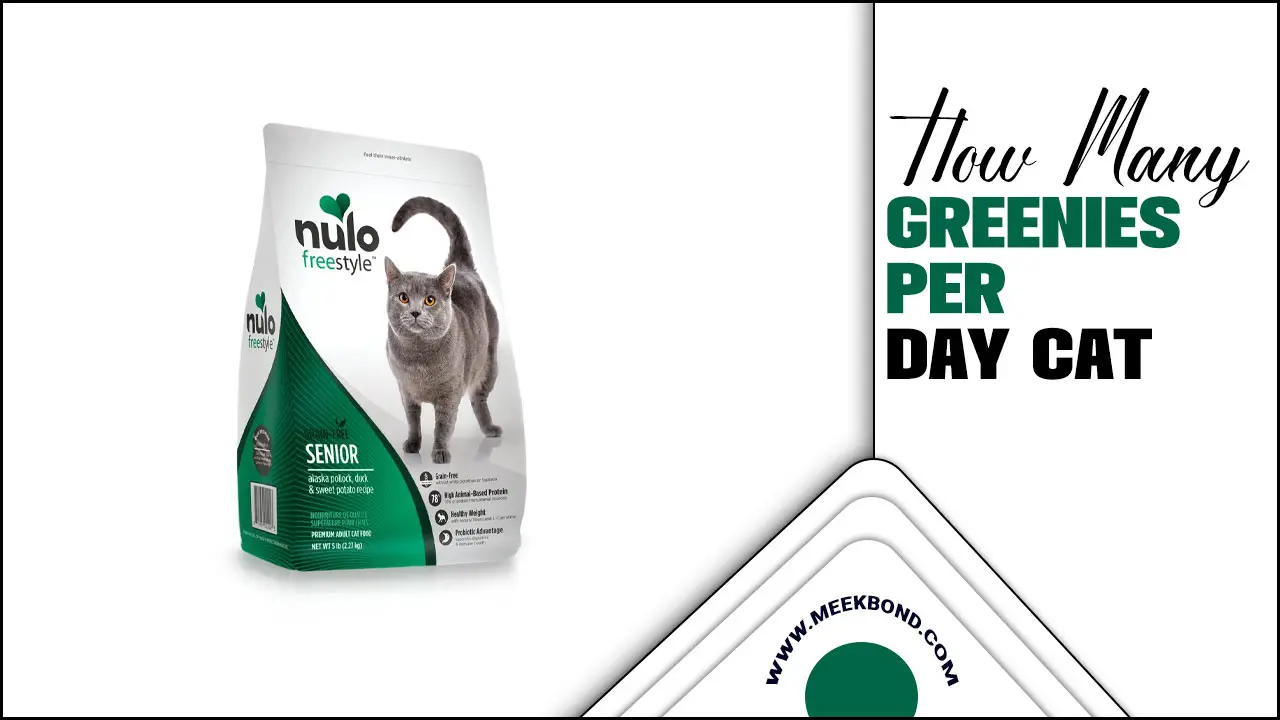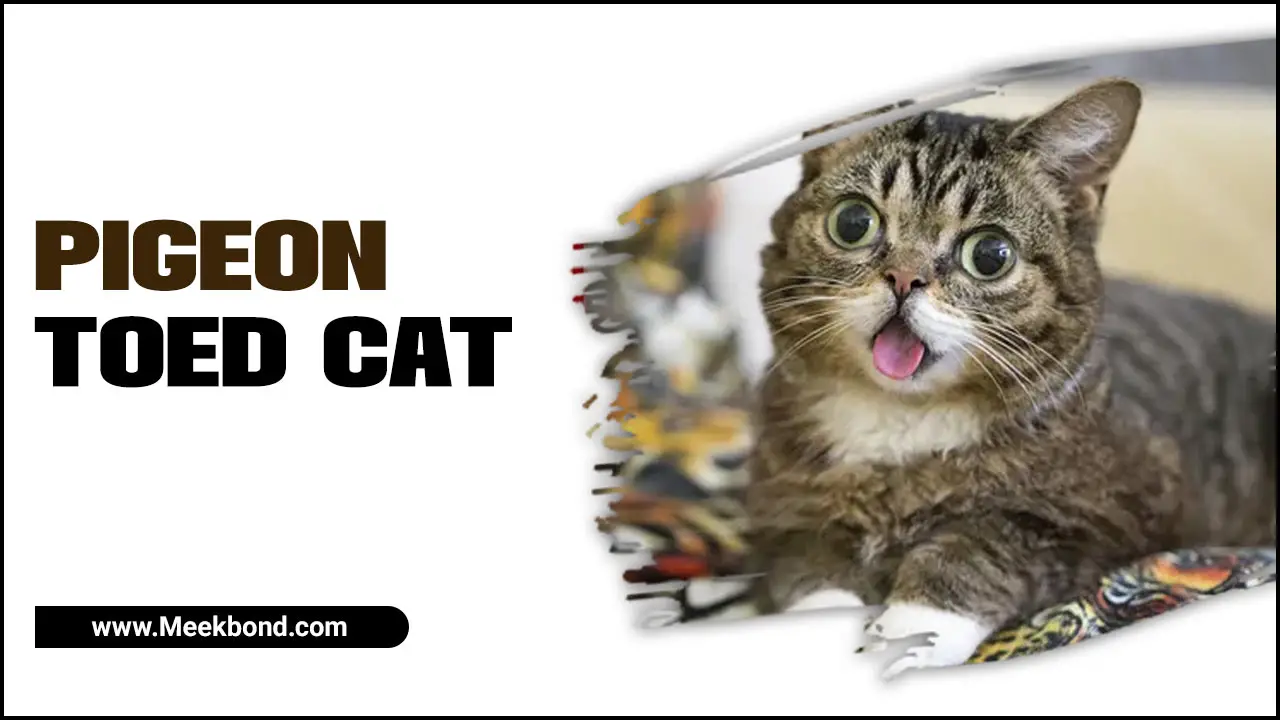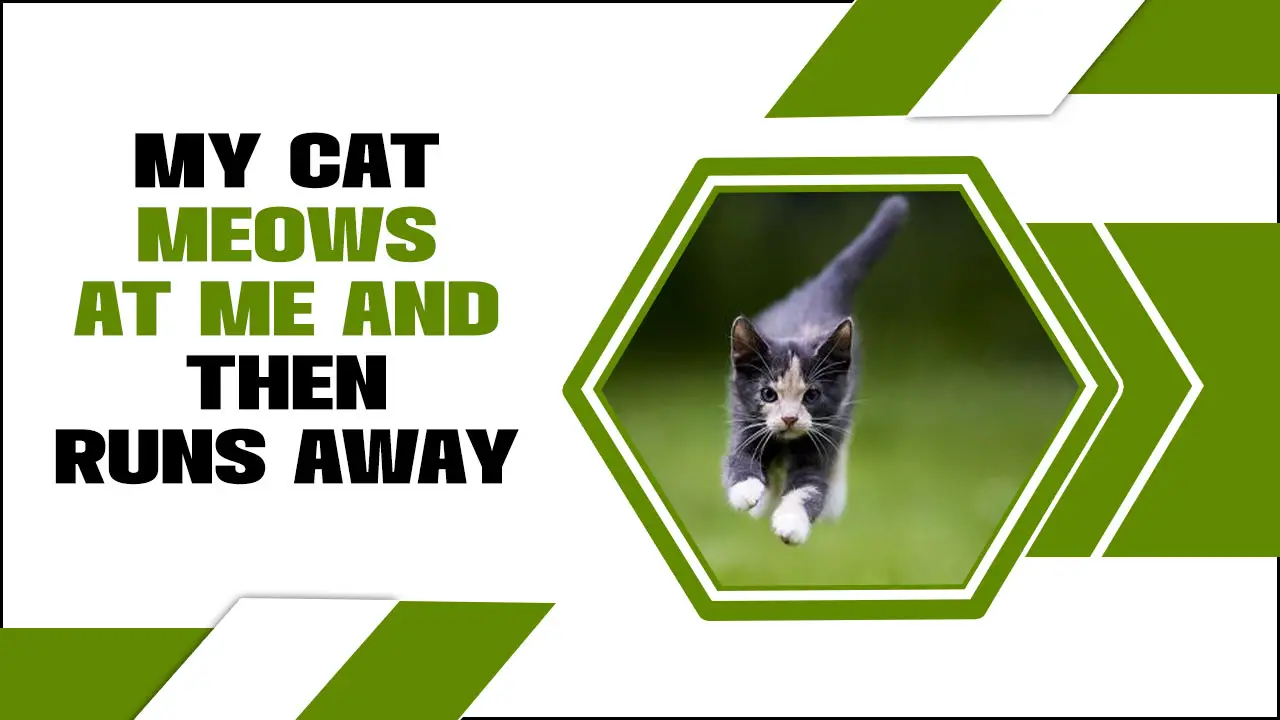As pet owners, we are constantly concerned about the well-being of our furry companions. Among the many responsibilities of owning a cat, ensuring they always have access to water is the most important.
But have you ever thought that your cat can go without water for long periods, like overnight? This question has become a point of debate among cat owners. However, as responsible pet owners, we must seek accurate information and expert guidance to provide the best care for our feline friends.
We will explore the question, “Can a cat go overnight without water?” and provide valuable insights from experts in the field of veterinary medicine. With a professional tone and evidence-based research, we’ll explore the importance of hydration for cats and whether it’s safe to go without water for extended periods. So, let’s dive in and uncover the truth about this commonly debated topic.
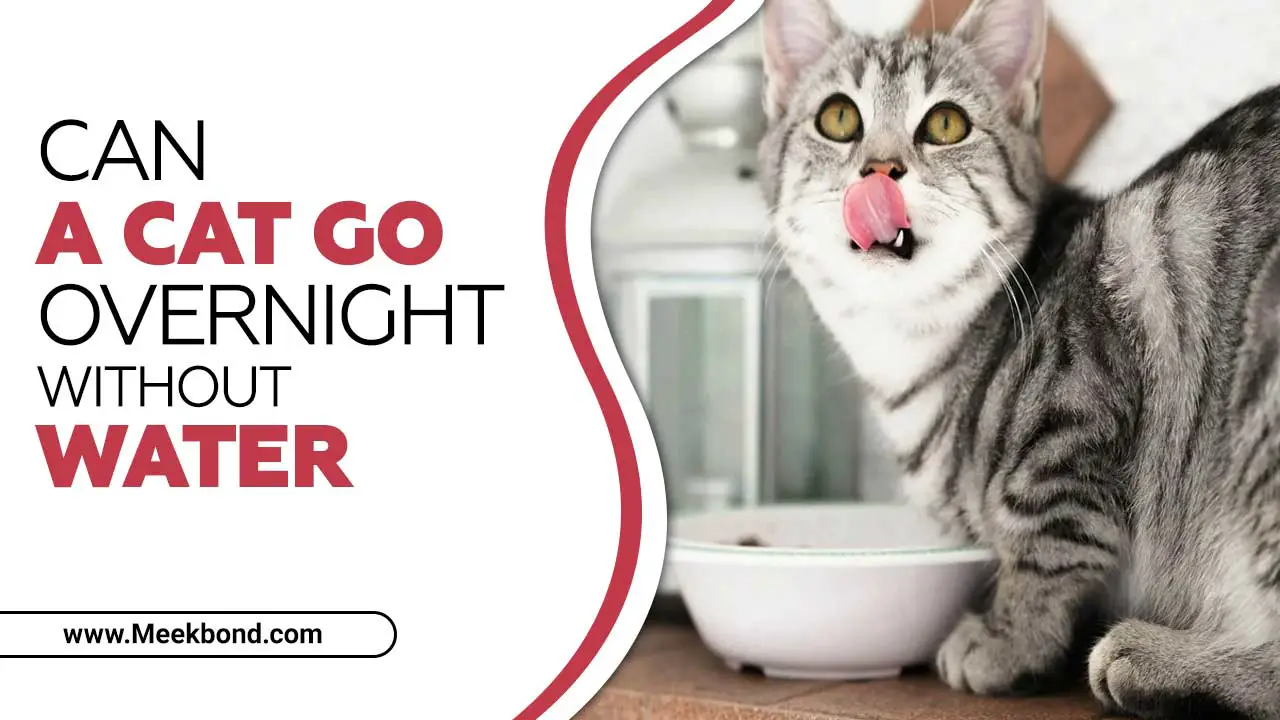
Can A Cat Go Overnight Without Water? – Details Answer
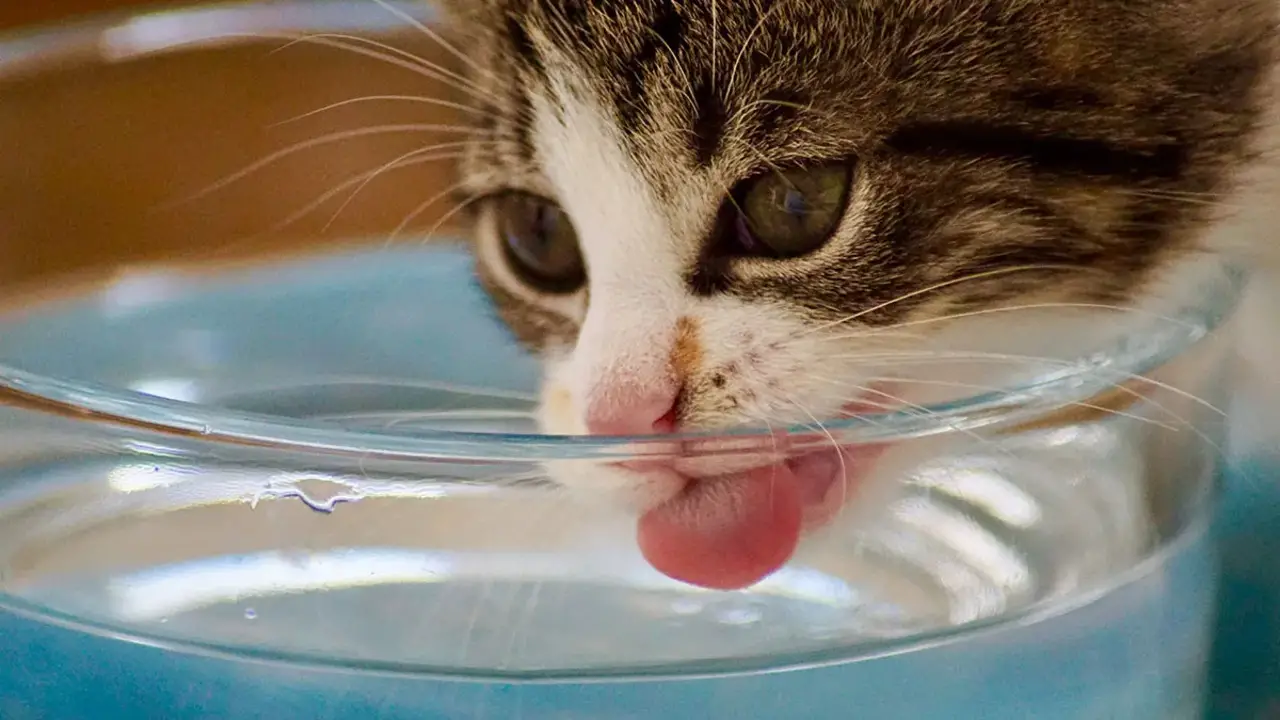
One common question pet owners often have is, “Can a cat go overnight without water?” While cats are popular for being independent and self-sufficient, they must ensure their basic needs, such as access to fresh water, are met.
Like all animals, cats require water to survive and maintain proper hydration. Dehydration can lead to various health issues, including kidney problems and urinary tract infections. Cats should always have a constant supply of clean, fresh water.
However, there may be instances where a cat may be without water for a short period, such as overnight. While it is not ideal for a cat to go without water for an extended period, they can typically manage for a night without adverse effects as long as they are adequately hydrated before and after.
How Long Does It Take For A Cat To Drink Water?
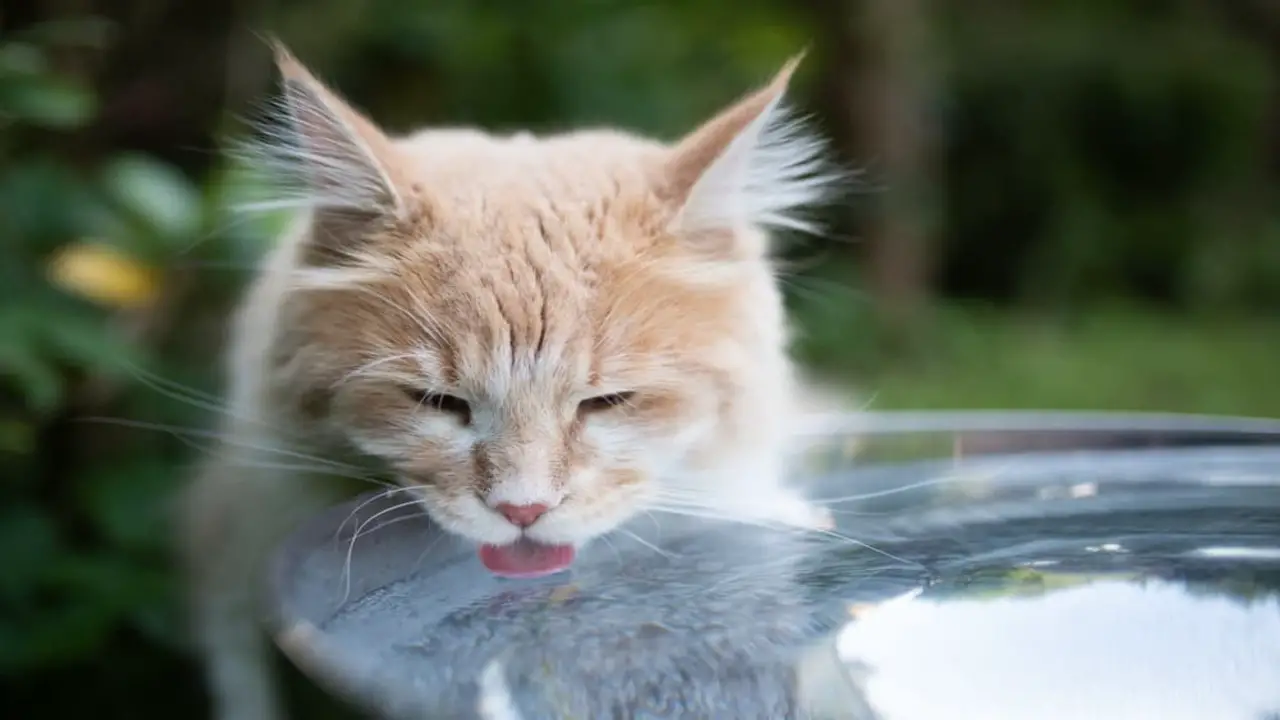
The amount of time it takes for a cat to drink water can vary depending on the individual cat and their drinking habits. Some cats may take only a few seconds to drink a small amount of water. At the same time, others may take several minutes to drink a larger amount.
Cats are notorious for being finicky creatures, and their drinking habits are no exception. While the amount of time it takes for a cat to drink water can vary depending on factors like age, health, and hydration levels, it takes cats about 15-20 seconds to drink water. However, depending on their preferences, some cats may take longer or shorter.
Monitoring your cat’s water intake and getting enough fluids to maintain good health is important. Suppose you notice any changes in their drinking habits or behaviour. It may be a sign of an underlying health issue and should be addressed by a veterinarian.
How Long Can A Cat Go Without Water?
As a responsible cat owner, it is important to ensure that your feline friend has access to fresh lots of water at all times. While cats can survive for short periods without water, it is not ideal for their health and well-being.
Cats are prone to dehydration, and lacking a pet water fountain can lead to serious health issues. On average, a cat can go without water for about 3-4 days, but this can vary depending on various factors, such as age, health, and environmental conditions.
To encourage your cat to drink more water, consider using a pet water fountain, which provides a continuous flow of fresh water and can help attract your cat’s attention. It is always best to consult with your veterinarian if you have concerns about your cat’s hydration levels or notice any signs of dehydration.
Will A Cat Ever Drink Any Water When Out Of The Home?
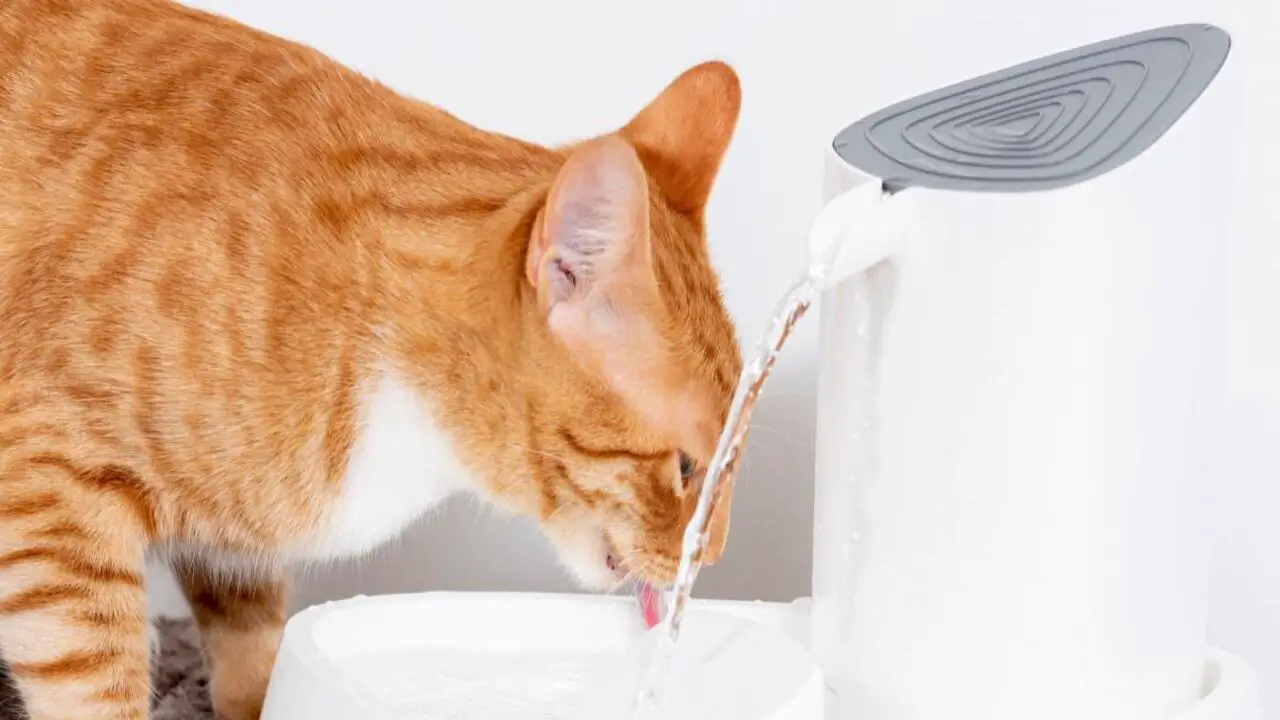
When a cat is out of the home, it is natural to wonder if they will drink water. While cats are known for their independent nature, they still need access to water to stay hydrated. In most cases, a cat will not go overnight without drinking water. However, there are a few factors that can influence their water intake. Firstly, warm water appeals to cats and encourages them to drink more.
Additionally, offering fresh food can help increase a cat’s hydration levels, as wet food contains moisture. It is important to ensure your cat has plenty of food and water available when you are away from home.
While a cat can survive for weeks without food, it is crucial always to ensure they have access to fresh water. Finally, establishing regular feeding times can also help regulate a cat’s water intake, as they may associate mealtime with drinking water.
How Much Water Does A Cat Need To Survive Overnight Without Drinking Water?
As obligate carnivores, cats have unique metabolic needs requiring them to consume sufficient water. In contrast, we do not recommend cats go without water for extended periods. They can typically survive overnight without drinking water as long as they have access to fresh water throughout the day.
The amount of water a cat needs depends on various factors such as age, weight, and activity level. A general rule of regular meals of thumb is that cats should consume at least 3-4 ounces of water per 5 pounds of body weight daily.
However, it is important to note that some cats may need more or less depending on their needs. It is always best to consult with a veterinarian if you are concerned about your cat’s hydration levels or if they are exhibiting signs of dehydration.
Importance Of Water For Cats
Water is paramount for our feline companions’ overall health and well-being. Like all living beings, cats rely on water to sustain various bodily functions and optimal health. Adequate hydration is crucial for digestion, circulation, temperature regulation, and overall organ function. We should not take lightly the responsibility of ensuring that cats have access to an ample supply of clean and fresh water.
Water is essential for cats’ overall health and well-being. It is crucial in maintaining proper hydration, digestion, and organ function. Cats with kidney disease or other health complications may require even more water to help flush out toxins and support their kidneys’ functioning.
If your furry friend has specific health conditions, it is important to consult with your veterinarian about their water intake needs and any necessary modifications to their diet or routine. Ensuring your cat has access to fresh, clean water at all times is vital for their overall health and can help prevent dehydration and related issues.
Potential Risks Of Letting A Cat Go All Night Without Water
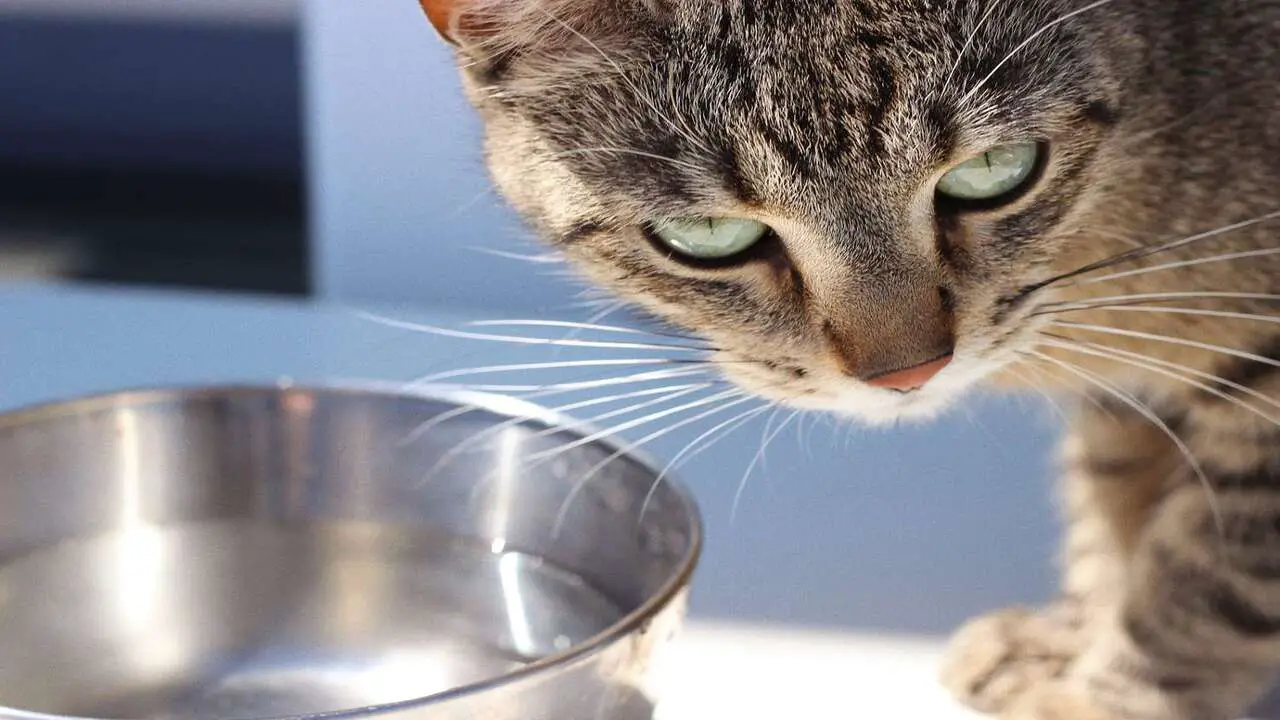
Cat owners must know the risks of not allowing their feline companions access to water all night. While cats are known for their independent nature and ability to regulate their water intake, depriving them of water for extended periods can harm their health. Here are some important points to consider:
- Dehydration: Like all animals, cats require proper hydration to maintain bodily functions. Without access to water throughout the night, cats may become dehydrated, leading to dry skin, lethargy, and even urinary tract problems.
- Kidney Health: Adequate water intake is crucial for maintaining optimal kidney function in cats. When deprived of water for a prolonged period, the kidneys can become stressed, potentially leading to kidney stones or other urinary complications. This can particularly concern cats predisposed to kidney issues, such as older or overweight cats.
- Urinary Tract Health: Insufficient water intake can increase the risk of urinary tract infections or cat blockages. The lack of water can cause urine to become concentrated, promoting the growth of bacteria and crystals in the urinary tract. This can result in painful urination, frequent urination, or even complete blockage, which is a life-threatening emergency for cats.
To ensure the well-being of our feline friends, it is crucial to provide them with access to fresh water at all times, including during the night. You can achieve this by placing multiple water sources around the house or using automatic water dispensers. By recognizing the potential risks and taking appropriate measures, cat owners can help maintain their pets’ overall health and prevent avoidable complications.
Tips For Ensuring Your Cat Stays Hydrated
Ensuring that your cat stays properly hydrated is crucial for their overall health and well-being. Cats are notorious for having a low thirst drive and may not drink enough water alone. As a responsible pet owner, you must proactively ensure your feline friend gets enough fluids throughout the day. Here are some helpful tips for keeping your cat hydrated:
- Ensure Fresh Water Is Always Available: Cats prefer running water, so consider investing in a cat water fountain that continuously circulates and filters the water. This will entice your cat to drink more and ensure the water remains clean and fresh.
- Wet Food Is Key: Incorporate wet food into your cat’s diet as it has a higher moisture content than dry kibble. This will give your cat additional hydration and variety to their meals.
- Multiple Water Sources: Place water bowls in different areas of your home to encourage your cat to drink throughout the day. This is especially important if you have a multi-level house or multiple cats.
- Monitor Water Intake: Keep an eye on how much water your cat is drinking daily. Suppose you notice a sudden decrease in water consumption or any changes in behaviour. It’s important to consult your veterinarian in that case, as it could indicate an underlying health issue.
How Much Water Should A Cat Drink?
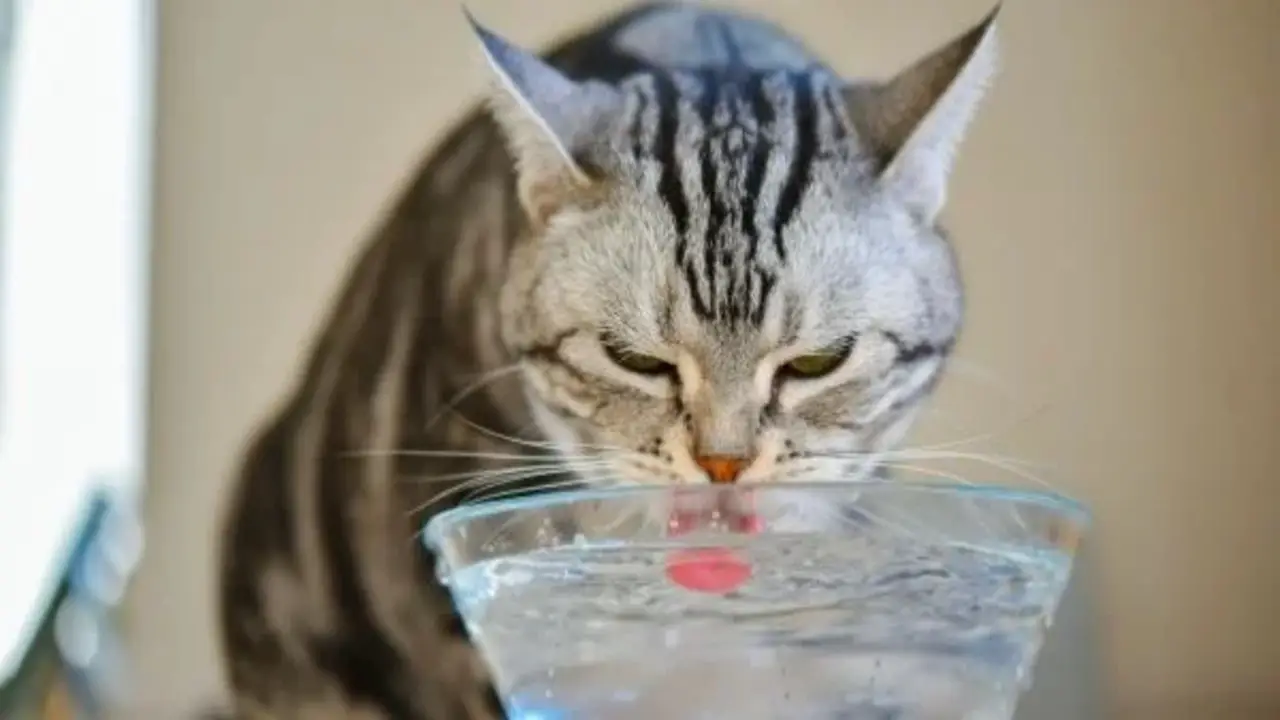
Cats are obligate carnivores, which means their bodies digest and use meat. As such, they need water to survive and thrive. A cat should drink about twice its weight in Water each day – which means a cat who weighs 2 pounds should drink 4 ounces of Water each day, and a cat who weighs 10 pounds should drink 20 ounces of Water each day.
If your cat is not drinking enough water, put some out whenever you change its litter box. Additionally, ensure your pet has plenty of fresh air and sunlight since these activities also help increase hydration levels in pets.
How To Tell If Your Cat Is Hydrated?
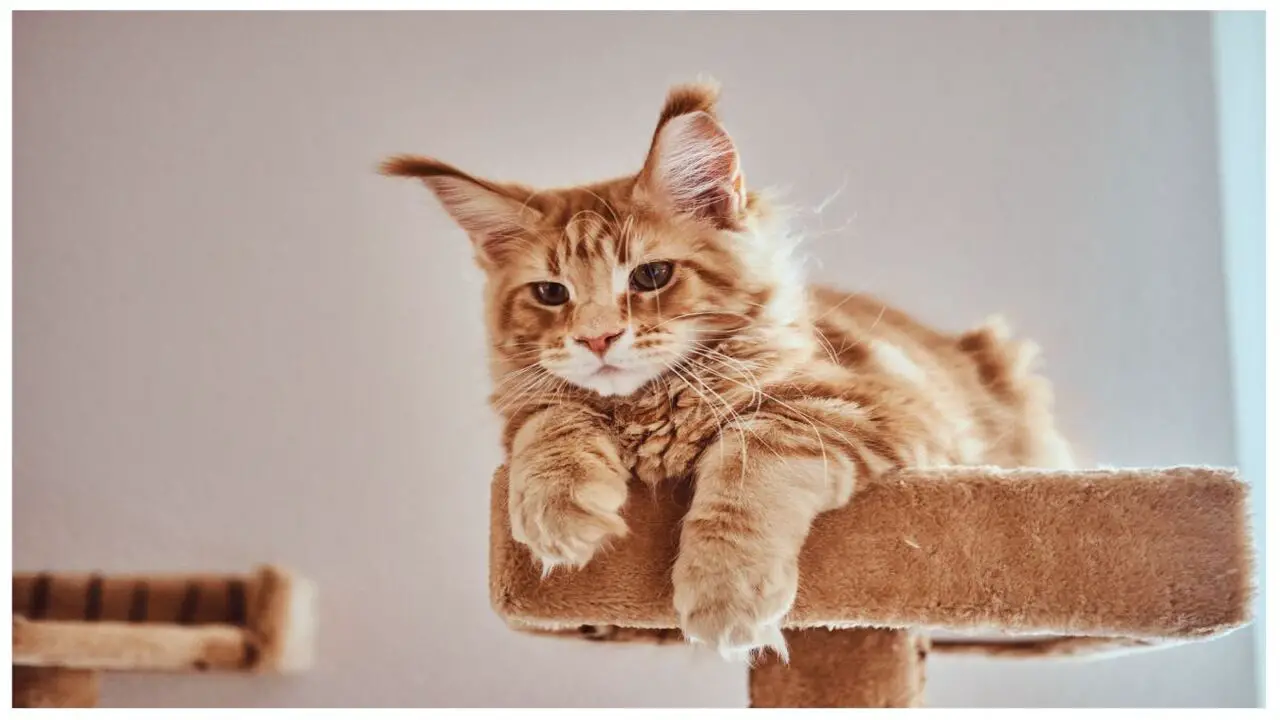
Ensuring that your feline companion stays properly hydrated is crucial for their overall health and well-being. Cats are notorious for being independent creatures, often masking signs of dehydration.
However, as responsible pet owners, we must be vigilant and attentive in monitoring their hydration levels. Here are some key indicators that can help you determine whether your cat is adequately hydrated:
- Skin Elasticity: Gently pinch a small amount of skin on the back of your cat’s neck and release it. If it quickly snaps back into place, your cat is likely well-hydrated. However, if the skin takes longer to return to its original position, it may be a sign of dehydration.
- Moist Nose And Gums: A cat’s nose and gums should feel slightly moist to the touch. Dryness in these areas can indicate that your feline friend is not getting enough fluids.
- Urination Frequency: Monitor your cat’s litter box habits. If your cat is urinating regularly and the urine appears pale in colour, it indicates proper hydration. Conversely, infrequent urination or concentrated urine may suggest dehydration.
- Energy Levels: Cats generally exhibit playful and energetic behaviour when adequately hydrated. If you notice a sudden decrease in your cat’s activity level, it could indicate dehydration.
As a responsible pet owner, being proactive in maintaining your cat’s hydration levels is essential. Encourage regular water intake by always providing a clean, fresh water source. Consider incorporating wet food into their diet, as it contains more water. If you suspect dehydration, contact your veterinarian for immediate guidance and intervention. Remember, a well-hydrated cat is a healthy and happy one.
Signs A Cat Is Dehydrated
Dehydration can be a serious issue for cats, and it is important to be aware of the signs that your cat may be dehydrated. Some common signs of dehydration in cats include dry gums, loss of skin elasticity, sunken eyes, and decreased urination. If you suspect your cat may be dehydrated, it is essential to take action to ensure their health and well-being.
One way to prevent dehydration in cats is always to ensure they have access to fresh water. Cats typically require around 3.5-4.5 ounces of water per 5 pounds of body weight daily. If you notice any signs of dehydration or if your cat’s water intake has significantly decreased, it is essential to consult with a veterinarian for proper diagnosis and treatment.
Factors That Can Affect A Cat’s Water Intake
Regarding understanding the factors that can affect a cat’s water intake, there are several key considerations that every responsible cat owner should be aware of. Proper hydration is crucial for maintaining a cat’s overall health and well-being, and understanding the factors that can impact their water intake is essential in ensuring they receive the necessary hydration. Here are some key factors to consider:
- Diet: The type of diet a cat consumes plays a significant role in their water intake. Cats that consume dry kibble may have a higher water intake requirement than those on a wet or raw food diet, as dry food typically contains less moisture.
- Age And Activity Level: Kittens and highly active cats generally require more water than older or less active cats. This is because their bodies naturally produce more waste products that need to be eliminated, increasing their need for proper hydration.
- Health Conditions: Certain health conditions, such as kidney disease, urinary tract infections, or diabetes, can affect a cat’s water intake. Cats with these conditions may experience increased thirst as a symptom or may be prescribed medications that require increased water consumption.
- Environmental Factors: Environmental factors such as temperature and humidity can also impact a cat’s water intake. Cats may drink more water in hotter climates or during the summer when they may be more prone to dehydration.
- Water Container And Placement: The type of water container and placement can influence a cat’s water intake. Cats may prefer running water or a certain type of water bowl, and placing it away from their food can also encourage increased water consumption.
By considering these factors and taking appropriate measures, cat owners can ensure their feline companions receive the optimal water intake to support their overall health and hydration needs.
Can Cats Go Without Water For Short Periods Of Time?
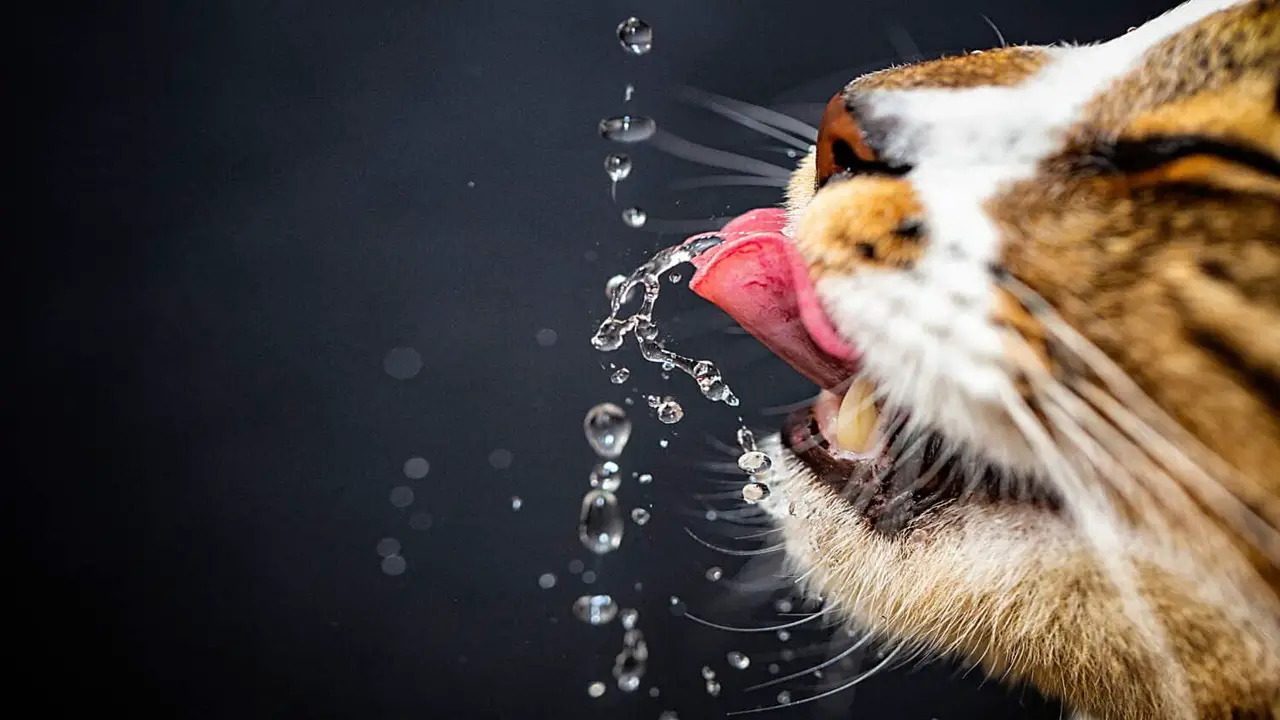
Cats are highly efficient at conserving water and have evolved to obtain moisture from their prey, so they may not appear to drink as much water as other animals. However, it is important to note that cats still require sufficient hydration to maintain their overall health and well-being.
Although cats can survive without water for short periods, doing so can lead to various health issues. Dehydration can cause problems such as urinary tract infections, kidney stones, and even organ failure. Therefore, cat owners must provide their feline companions with constant clean water.
This can be achieved by regularly refilling water bowls and ensuring they are easily accessible to the cat. Additionally, some cats prefer running water, so investing in a cat water fountain may encourage increased water consumption.
Conclusion
While cats may have a lower thirst drive than other animals, they are not recommended to go without water overnight. Dehydration can lead to serious health issues for cats, and pet owners must always ensure their feline friends have access to fresh water. If you have concerns about your cat’s water intake, consult your veterinarian for personalized advice and recommendations. Remember, a well-hydrated cat is a happy and healthy cat.
It’s important to ensure that your cat has access to clean drink water throughout the day and night. To summarize, cats should be encouraged to drink water by giving them a choice of liquids; they will enjoy something cool and refreshing before searching for water again.
We’ve discussed can a cat go overnight without water. We hope now you know whether a cat can go overnight without water. Cats are obligate carnivores and, as such, need water to survive.
Frequently Asked Questions
HOW LONG IS A CAT’S MEMORY?
A cat’s memory is typically shorter than humans, ranging from a few minutes to a few days. They can remember important information, such as the location of their food or litter box, and recall past experiences that significantly impacted them.
Are Cats OK Left Overnight?
Cats are generally okay left overnight if they have access to food, water, a litter box, and a safe environment. However, it’s important to consider the individual cat’s needs and temperament.
Can A Cat Go 12 Hours Without Water?
No, a cat should not go 12 hours without water. Cats need constant fresh water to stay hydrated and maintain their overall health. Dehydration can lead to serious cat health issues, including urinary tract problems and organ damage. It is essential to ensure that cats always have access to clean water throughout the day.
Do Cats Miss Their Owners?
Yes, cats can miss their owners. While cats are known for their independent nature, they can form strong bonds with their owners and show signs of missing them when they are away.
Do Cats Recognize Their Name?
Yes, cats are capable of recognizing their name. They can learn and respond to specific sounds and cues, including their name.

Aquarium passion is all about connecting with the aquatic life and providing education to the public on the importance of these creatures. We showcase a wide variety of marine life through our exhibits as well as working with schools to provide unique learning opportunities for students of all ages.

